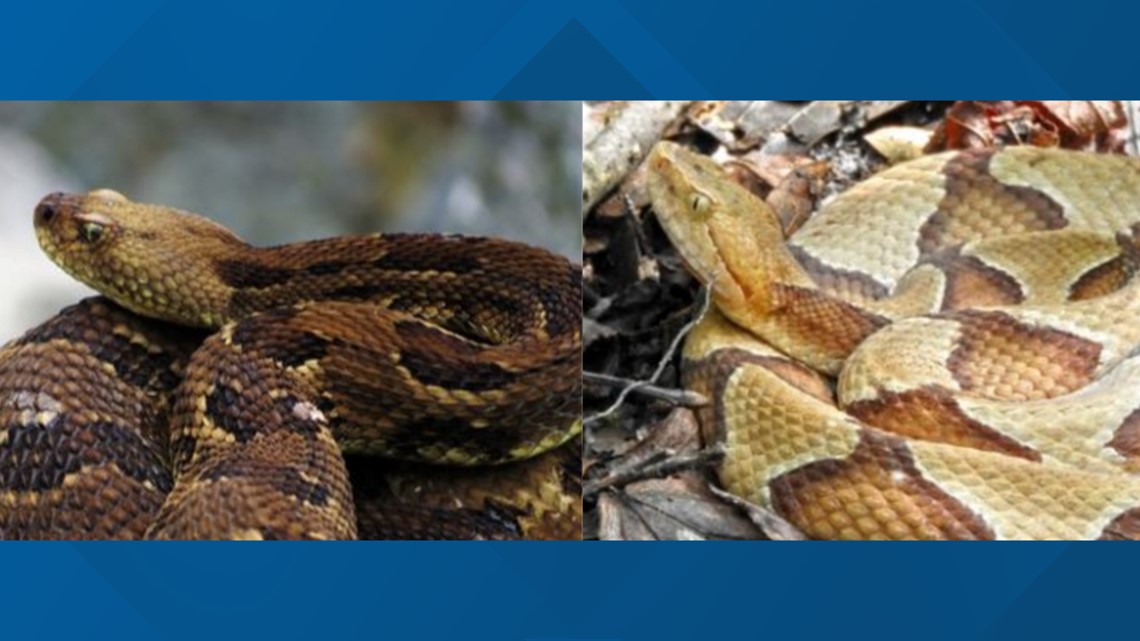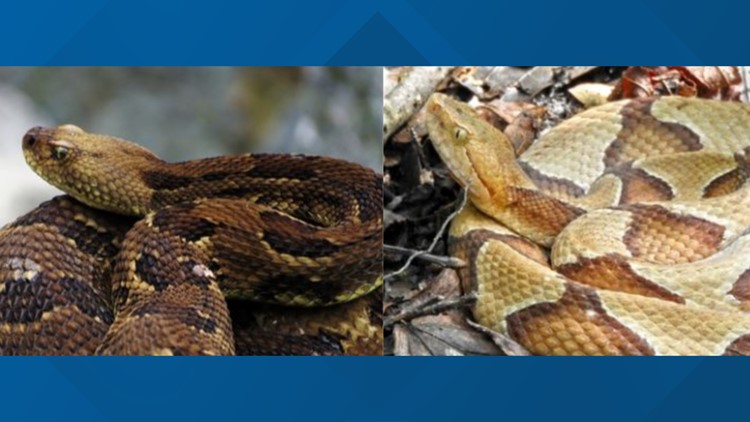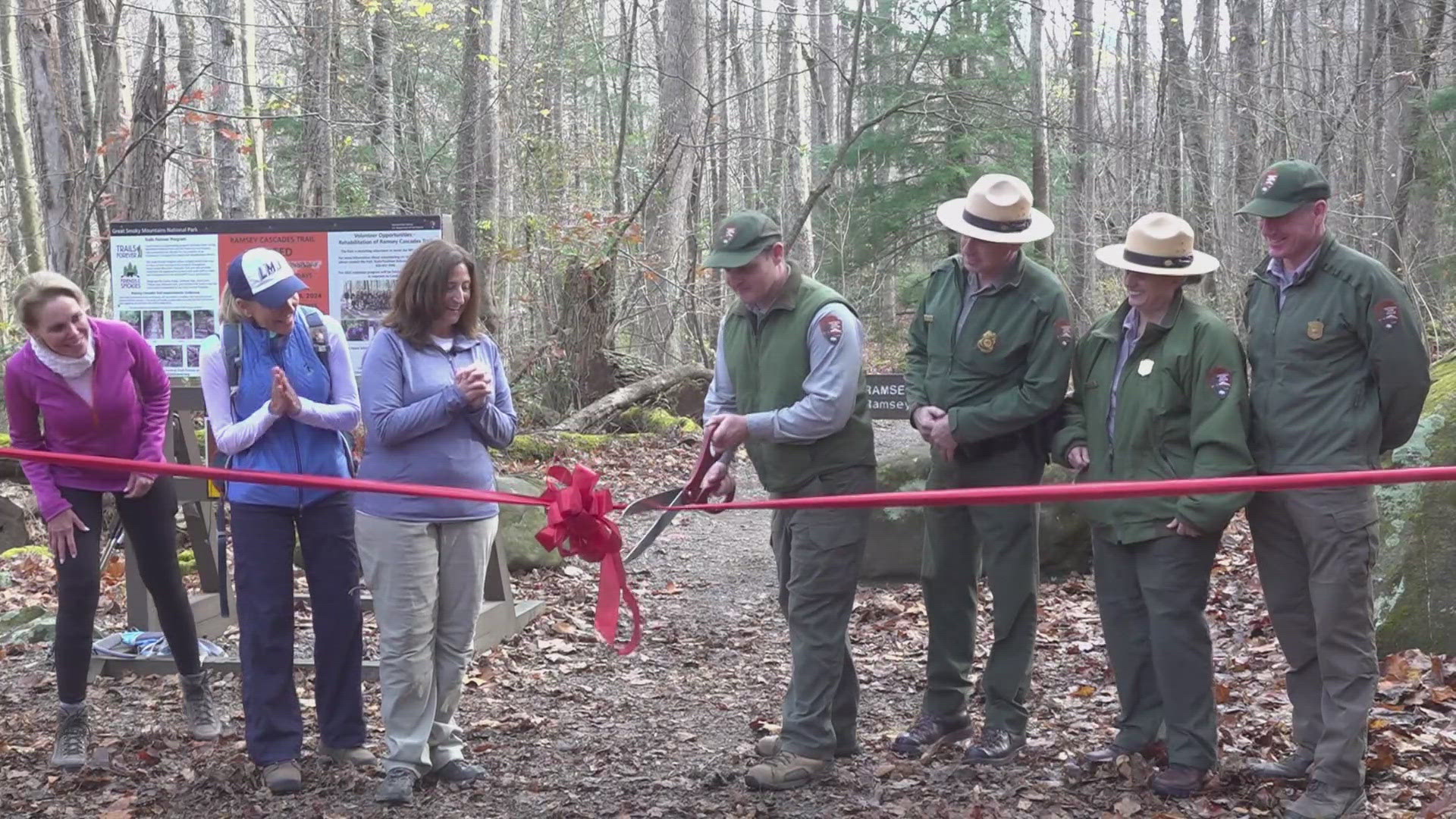Great Smoky Mountains Natl. Park — The days are long, the sun is bright and creatures of all kinds are exploring the Great Smoky Mountains. Some of those creatures are slithering on the ground — snakes.
The Great Smoky Mountains National Park said there are 23 species of snakes in the area. Only two of those are venomous — the Northern Copperhead and the Timber Rattlesnake. GSMNP said people should make sure to keep their distance and leave them in peace.
"All wildlife is protected in the National Park, so keeping a safe distance and respecting wildlife, including snakes, is important," they said on social media. "If you encounter an aggressive snake in the park, especially in a highly trafficked area, please let a park ranger know."
Northern Copperheads have large, triangular heads that are usually coppery-red. They also have a distinctive brown coloration with hourglass-shaped crossbands along the center of their backs. The Tennessee Wildlife Resources Agency said their venom is not potent, and fatalities from it are rare.
Timber Rattlesnakes are easily identified by the rattle at the end of their tails. They also have a large, triangular head with vertical pupils. However, their coloration can vary. Usually, they are gray and have a black tail. Other scale colors can include yellow, tan, brown, pink, dark brown or black.
They have black chevron-shaped crossbands throughout their bodies and typically have a rust-colored stripe down the center of their backs. This kind of snake is also notoriously reclusive and shy, avoiding populated areas in favor of hiding in the long grass of secluded areas.


Both snakes have deep facial pits on each side of their heads, with elliptical pupils. The National Park Service said the likelihood of a visitor seeing a venomous snake in the park, let alone being bitten by one, is small.
The other 21 snakes in the park are nonvenomous. They include worm snakes, black snakes, corn snakes, hognose snakes, kingsnakes, milk snakes, water snakes, earth snakes and garter snakes.
The Northern Water Snake is often mistaken as a Cottonmouth snake, but Cottonmouths are not found in East Tennessee, according to the Tennessee Wildlife Resources Agency.
And if someone is bitten by a snake, regardless of the species, they should go to the hospital immediately.


